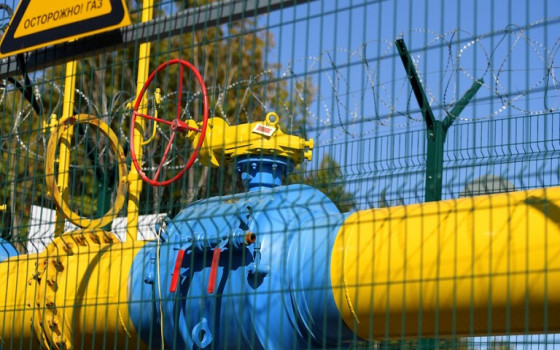
The European Commission presents a new proposal to end Brussels' dependence on Russian oil and gas.

- Europe and Arabs
- Wednesday , 18 June 2025 14:10 PM GMT
Brussels: Europe and the Arabs
The European Commission has submitted a new legal proposal aimed at setting deadlines and strategies for EU countries to implement to gradually phase out their dependence on Russian oil and gas, as part of the "REpowerEU" plan. The European Commission has published a new legislative proposal aimed at enabling the European Union to phase out imports of Russian oil and gas by 2027. According to the Brussels-based Euronews website, the proposal sets out deadlines and strategies for EU countries to reduce their dependence on Russia as a fuel supplier, as part of the REpowerEU plan launched by the Commission to promote energy independence on the continent.
The proposal did not address the nuclear energy sector, as a senior Commission official explained that this aspect would be addressed separately during a meeting with journalists.
Since the start of Russia's comprehensive military operation in Ukraine in February 2022, the European Union has been gradually reducing its imports of oil, gas, crude oil, and nuclear materials from Russia.
Data shows that by 2024, the EU will still be dependent on Russian imports for 19% of its gas and 3% of its crude oil supplies.
Commenting on the announcement, European Commission President Ursula von der Leyen said: "Russia has repeatedly tried to blackmail us by using its energy supplies as a weapon." We have taken clear steps to turn off the tap and end the era of Russian fossil fuels in Europe once and for all.”
The Proposal
Under draft rules unveiled by the European Commission, any new contracts for Russian gas imports will be prohibited starting January 1, 2026. Existing short-term contracts are scheduled to expire by June 17, 2026, with limited exceptions for landlocked countries that rely on long-term agreements, which will be allowed to import Russian gas until the end of 2027.
The proposal also prohibits long-term contracts that include LNG terminal services in cooperation with Russian companies, a move aimed at opening the way for alternative suppliers and liberalizing import infrastructure.
Under the same rules, EU countries are required to submit detailed energy diversification plans, including specific steps and milestones to replace Russian energy imports, as part of their commitment to the REpowerEU plan and ending their complete dependence on Russian fossil fuels.












No Comments Found